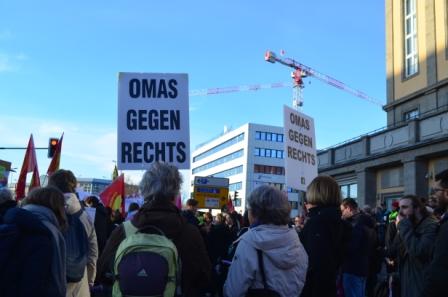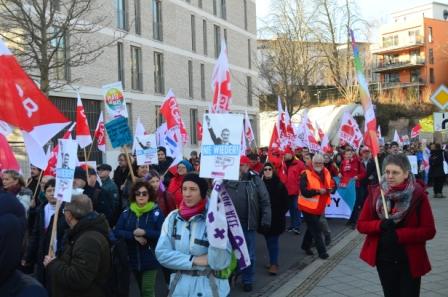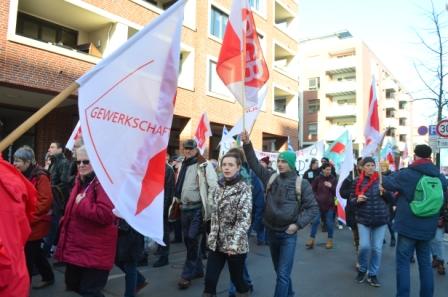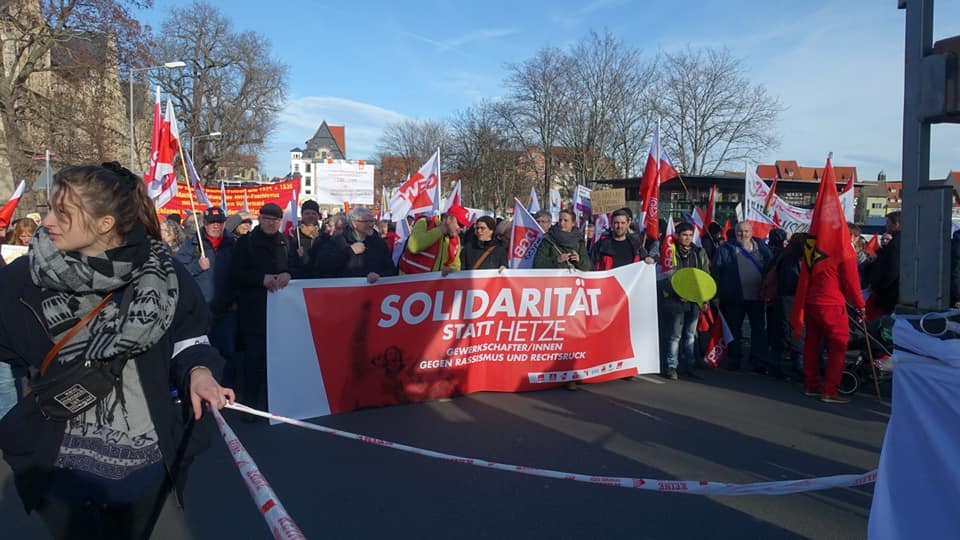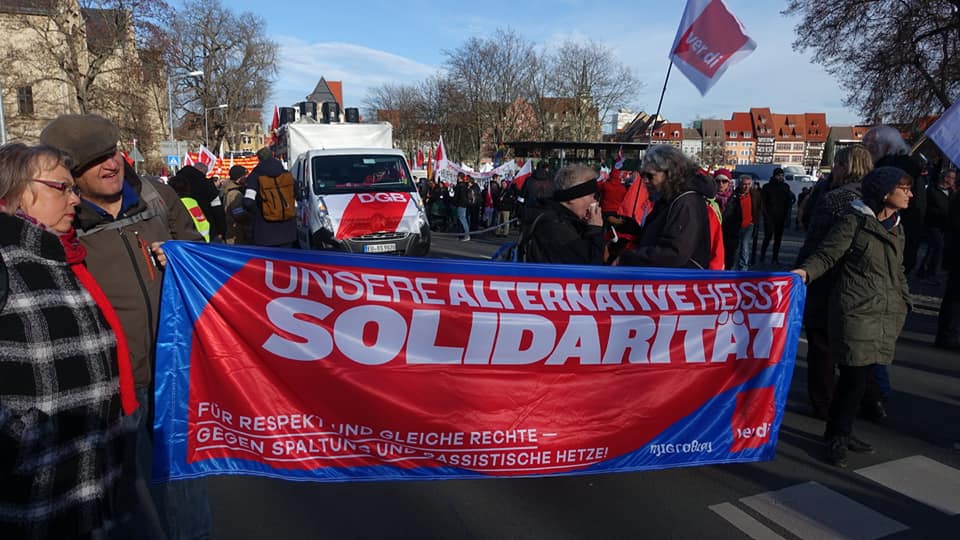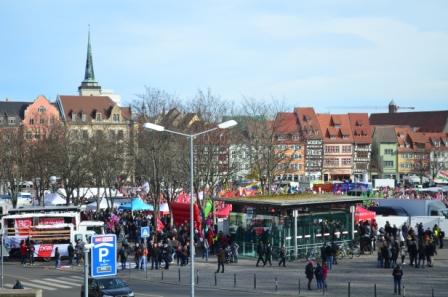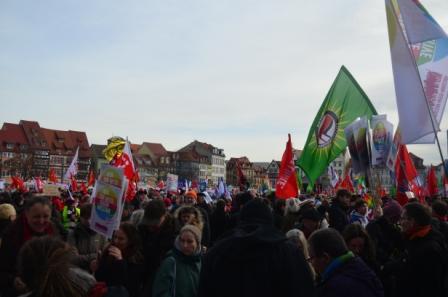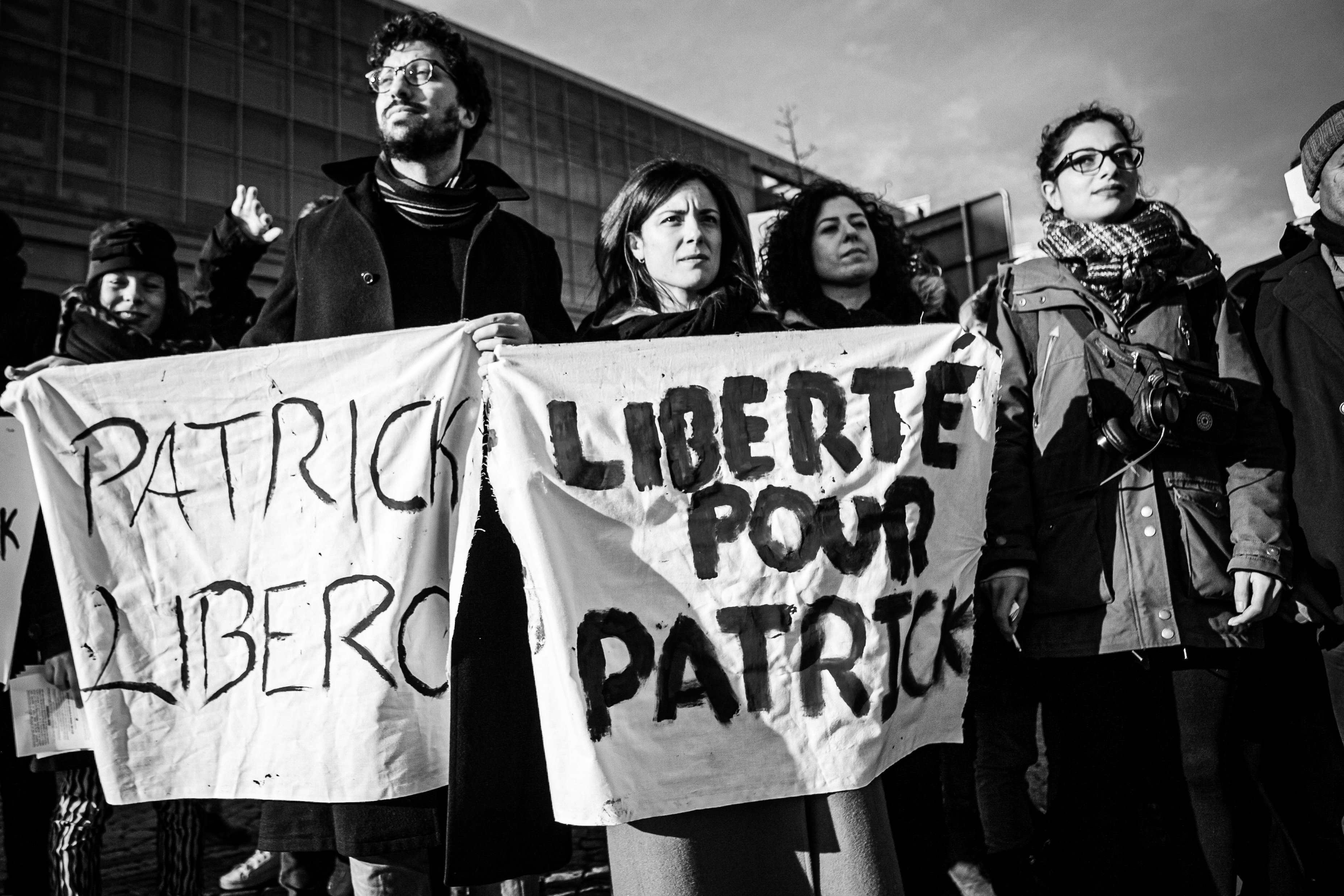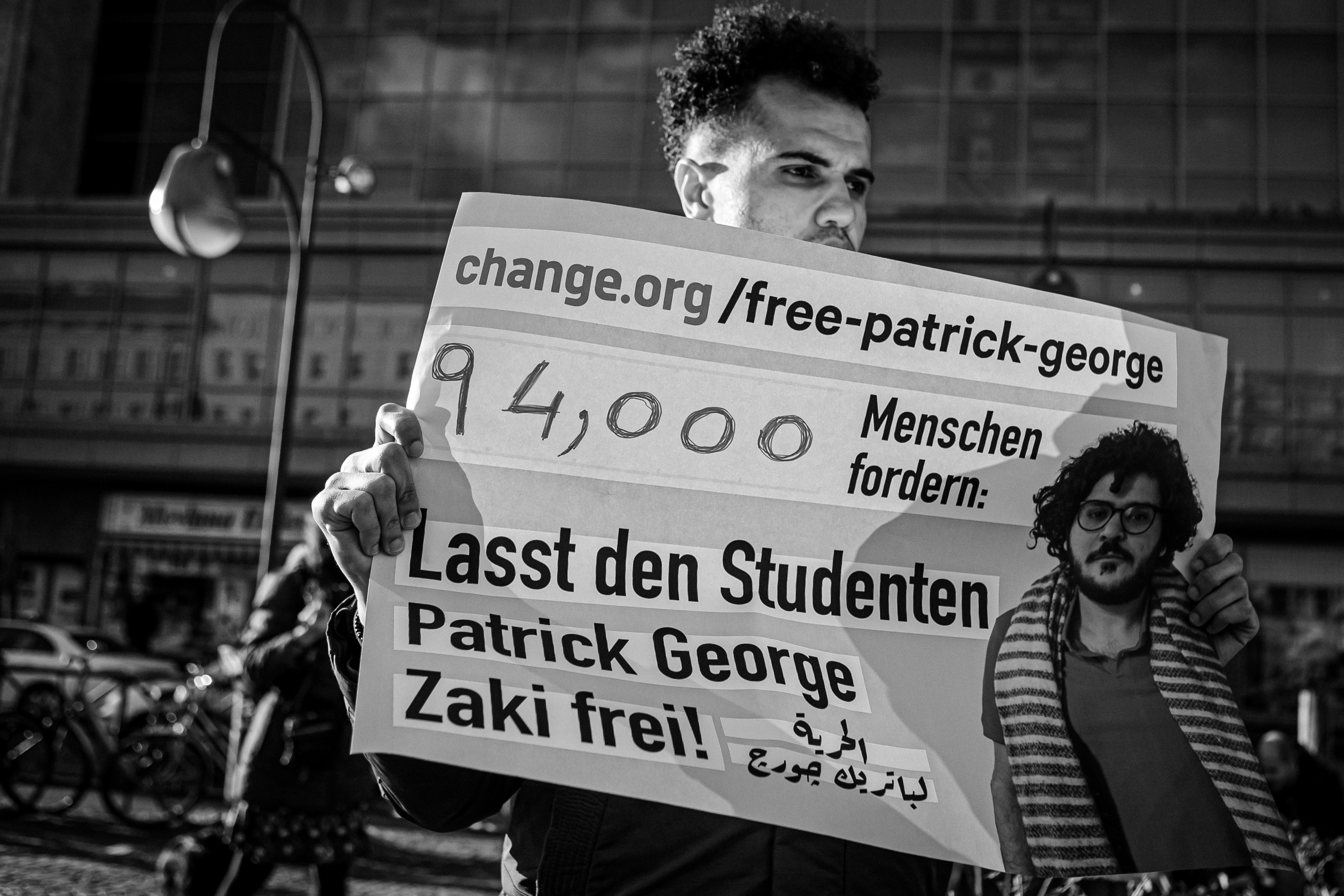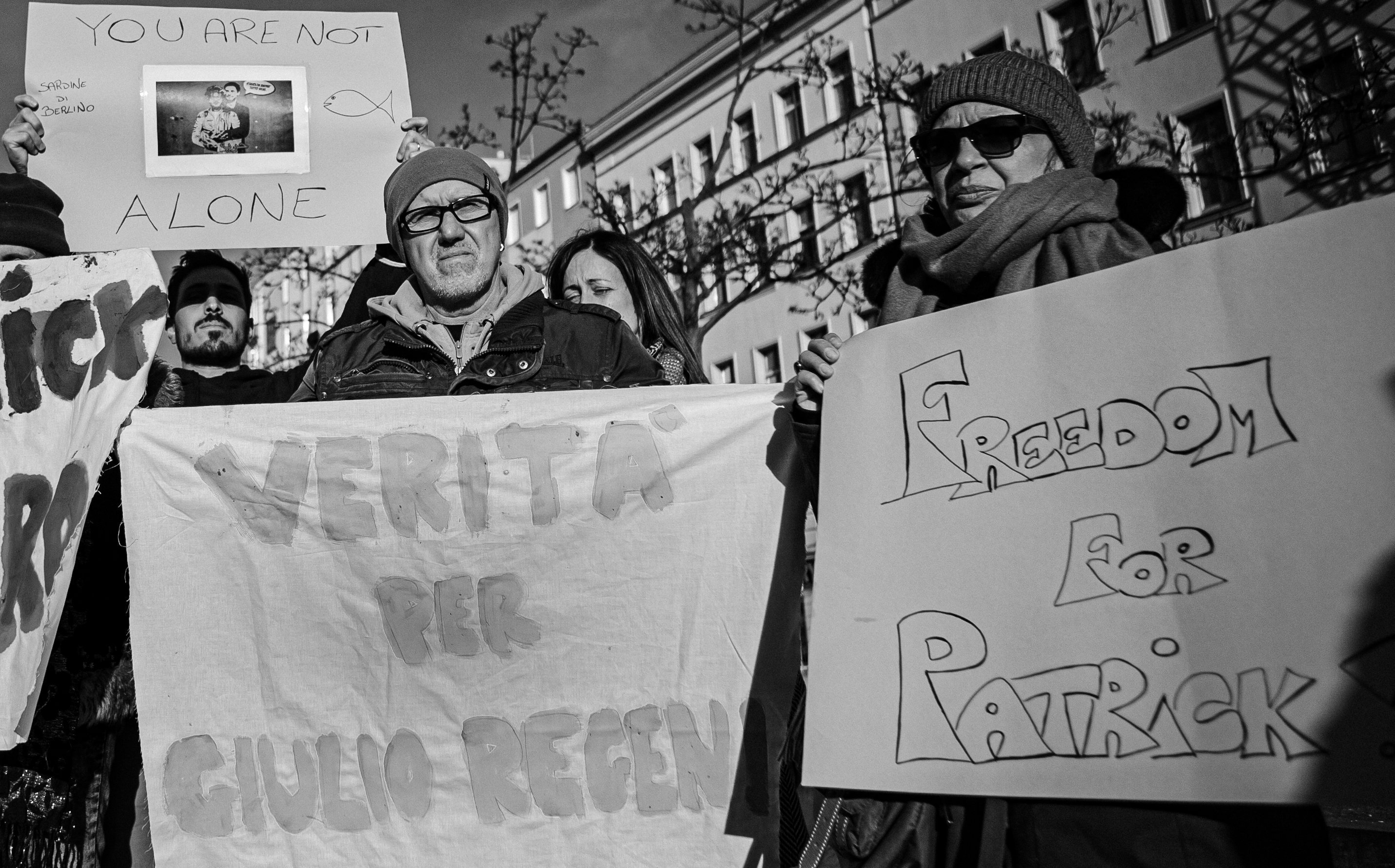Introduction
We recently put some views on the medical and immediate economic crisis of the COVID 19 pandemic. [1] Since then, a lot more left articles have been published. These collectively give us a good picture of the crisis from the left viewpoint. Taken together they make some common points.
-
how the pandemic has hit workers and the most vulnerable (unemployed, those in debt, immigrants, refugees etc) the most;
-
how the chronic under-funding of health care systems has been exposed amid rocketing health care needs;
-
how health care workers are not protected – rather they are put at dangerous risk by an under-financed and ill-prepared health care system; and that the capitalist class will bail its own class out with state monies, but much less of this will filter down to the working class and rising numbers of unemployed.
This article will tackle two questions
When will we know the health crisis is ‘over’ or at least diminished to allow relaxation of ‘social distancing’? What demands should the working class make in the short term?
1. The trade-off of a social isolation policy
Most workers in at least the Western bourgeois democratic states seem to have largely accepted the following trade-off when considering policies of quarantine-social isolation: On the one hand, reducing social contacts with reduced large group assembly outside of family will lower the burden on health care service by lowering the numbers infected, and thereby the acute load on the health service; and slow the death rate;
On the other hand, at the same time it suppresses individual freedoms; and more importantly the working class rights of free association and protest, and rights of organization of meaningful protests. It also reduces social communication for a human species who is by nature – social. This can lead to profound psychological disturbance if prolonged.
Most scientists and informed observers interpret the current short-term situation as marked by:
-
a new virus (to humans with no immunity to it) with very high transmissibility-contagiousness in the absence of vaccines or imminent therapy;
-
hitting an already creaking health care system in most countries of the capitalist world.
In that situation, most people seem to have agreed that a period of ‘shut-down’ is essential, and will lower the death rate for the working class – including health care workers such as nurses and doctors.
But how long is this policy correct for society to adhere to? Extending policies of quarantining-social distancing- social isolation beyond the point of medical justification, will tempt some dictators. Inevitably in some countries, the ruling class will attempt to extend a period of suppressing worker rights.
Therefore a reasonable question is ‘How long is enough?’
Data from China which was the first country to go through the epidemic, suggests that a period of up to 2 months or potentially slightly longer. This period was needed to lower the new infection rate adequately – to prevent new outbreaks. But admittedly this was enforced in a ruthless ‘lock-down’, by a dictatorial Chinese state.
However, the situation was entirely different, for example, in the USA or the UK. There the ruling class’s self-serving refusal to acknowledge the virus became a real threat to workers, and resulted in real and life-threatening delays. [We will not be distracted into discussing the idiocies of Johnson’s advocacy of promoting ‘herd immunity’; nor of Trump’s dismissal of ‘the Chinese virus’].
In the UK and the USA, these fatal delays led to a huge unknown volume of either minimally symptomatic or asymptomatic carriers, who infected a further large unknown number. In that situation, the period of medically recommended seems likely to be longer. There perhaps it may be up to 4 months, as the pool of infected people with a latent ability to transmit is very large.
Rather than guessing, are there better ways of estimating an appropriate length of time? One that balanced the trade-off to both protect working-class lives, while minimising the duration of social isolation.
3. Are there scientific ways society could estimate when to lift social isolation?
Some ways are emerging, despite all the uncertainty. Below is a table made up by the German paper, “Suddeutsche Zeitung”, using data from Johns Hopkins University in the USA, re-computed three times a day. [2] We show the table from the 27 March 2020 at 1730 pm. The columns in English from left to right are: ‘the country’; ‘confirmed cases’, ‘the number of deaths’; ‘the rate in days of doubling of cases’.
It can be seen that the doubling rate varies a lot. Where it is a small time period (e.g. 2.9 days for the USA) this is very worrying and indicates the period of social-isolation is warranted medically. In contrast, the situation in China nowadays shows the epidemic has largely passed – doubling at 579.4 days.
But this is still gross complete full population data. Can this be more fine-tuned, perhaps even individualised? It is likely the more technologically adept countries can, and will be able to. For example in Germany.
Perhaps, the best epidemiological data is emerging at the moment, from scientists at the Robert Koch Institute in Berlin. The virologist, Drosten and his team were very quick to develop a diagnostic test. It was then offered to the WHO. Germany was widely testing before most other Western countries.
By now it is well known that that test was made available to the USA by the WHO early on. That offer was rejected by the chauvinistic Trump administration and its politically tethered CDC. Drosten’s team has gone on to perfect the blood testing of people after known infections, to follow their antibody responses. Such serological testing enables checks on individuals’ immunity. This will soon be possible on a mass scale in Germany.
In an interview now on-line in English, Drosten explains his belief that only active diagnostic and serological testing, – can scientifically answer the question of “when is enough enough?”
But Drosten sensibly (in my view) suggests also, a shift in focus from an across-the-board restriction, to a focus on the most high-risk population. [3] It is worth citing a short excerpt, which discusses two situations: the elderly, and testing people prior to return to work safely. But to start with, Drosten agrees that “a year of a state of emergency” – is pretty ‘un-imaginable’:
Drosten: We perhaps have to assume that from a societal perspective, we’ll have to go through a year in a state of emergency. But we probably won’t continue pursuing all measures precisely as we have now introduced them. We will be able to, we will have to, adjust them. Some things will be phased out. But during the initial phase between now and the week after Easter, we really have to take rigorous action and keep a close eye on the development of the number of cases.
ZEIT ONLINE: A year of a state of emergency? What will our lives look like during this period?
Drosten: Nobody knows. I can’t imagine it yet either. … “
Therefore he proposes a different approach, moving away from a blanket social isolation policy for the whole population, to a testing strategy to identify high-risk individuals:
For those who are particularly at risk.
ZEIT ONLINE: What kinds of things do you have in mind?
Drosten: Certain arrangements could be made specifically for such risk groups, for example by rigorously testing the elderly and those at risk early on and giving them priority when it comes to hospital admissions. And those at higher risk will have to continue to work from home, for an extended period. It could be possible to find ways to isolate elderly people at home. There could be shuttle services for them, and groceries would have to be delivered to them. Volunteers could help, perhaps even the German military. And in day-to-day life, children would have to be kept away from those at risk as strictly as possible.
ZEIT ONLINE: And then the schools could be opened again?
Drosten: Perhaps measures could be imposed, like half the school can use only these hallways and the other half the other hallways. There would no longer be a long recess, and perhaps no short ones either. Common rooms would no longer be used and would be locked. With such measures, you can reduce effective group sizes in the schools. That would require some planning, but we have time between now and the week after Easter. The most important thing is that we need scientific data regarding the situation at schools.
ZEIT ONLINE: And what if grandparents want to see their grandchildren again?
Drosten: Perhaps it will be the case that grandchildren will first have to undergo a test when they want to visit grandma and grandpa to be sure that they don’t infect them. Such details now need to be clarified. With the political decisions that have been made, social life has been put on hold. But hopefully adjustments can be made with the help of scientific findings and modelling that apply specifically to Germany.
ZEIT ONLINE: When will people be able to go back to work?
Drosten: In the medical world, consideration is already being given to the idea of testing people so they can go to work. Once antigen tests are available, that could be expanded to include other occupational groups. Plus, if we assume that during the current wave of infections, perhaps 10 to 15 million people will become infected in Germany by autumn, we will soon have a large number of people with antibodies. People who are immune. Then, there will be doctors and nurses who can work without masks, and in other occupational groups, there will also be people who say: “I’ve made it through.” And their number will continually increase.
We caution against elements of naivete in Drosten’s thinking (‘Volunteers could help, perhaps even the German military.’) Maybe this is too cynical on my part. In any case, even the most skeptical cannot ignore that Drosten has compassion. Nor should they reject that Drosten outlines a sensible strategy: to target the highest risk groups, after initial larger quarantining.
Hence, in conclusion – a period of between 2-4 months is pragmatically both realistic and acceptable scientifically. I think also from the point of view of working-class rights.
The use of sensible medical testing to prolong advised isolation for high risk-groups is likely sensible for society. Furthermore, the working class should use every means at its disposal to challenge and resist prolongation beyond a medical justification. That exact period will likely depend upon the specifics of each country, and whether infection rates are rising or falling.
4. What progressive should do if the shut-down gets extended beyond reasonable medical justifications
One reassuring thing is that by and large, the medical and scientific teams are working at this in a transparent and caring manner. To reinforce this view, the scientific data is being widely published in the peer-review medical press and lay press. While peer-review is far from perfect, it also far from being subject to censorship. Censorship of both the lay press and the medical press, seems to be an unlikely possibility in the very near future, at least in the standard Western-type bourgeois democratic states.
But it is the potential misuse of the data by unscrupulous politicians – perhaps especially in countries with more obvious authoritarian structures and rule – that should be the focus of the working-class movement. In several countries (including India, Egypt, China, The Phillipines etc) the intimidation and persecution of papers and reporters have been intense. Added to all this is the role of new, more intense methods of surveillance. These become inextricably linked to how much trust can be placed on such information remaining secure, or not misused. For instance in China even now:
“China is already normalizing some of its emergency measures to spy on its population. It has implemented an app-based system of health codes that assign different colour codes to citizens depending on how closely they have been in contact with corona-affected areas. Access to public transport and job facilities could be linked to this data. Public health can hence quickly serve as a pretext for ‘risk scoring’ citizens or even sabotaging political dissidents. Also in Western countries, a cluster of disaster capitalism is forming around the crisis. Private companies have already started developing apps that combine geolocation data with health scores to monitor public life.” [4]
Regardless of the type of government, whether a standard bourgeois democracy, or a more authoritarian government – the working class and its representatives need to be on guard. What should they do if they suspect the period of shut-down is extended beyond any medical justification?
One first step is to consult their own best progressive scientific and medical advisers to verify if there is an appropriate medical justification. These advisers range from national bodies such as the Physicians for a National Health Care Program (formed and led by Drs Woolhandler and Himmelstein) in the USA, the Socialist Health Alliance (UK) and similar organisations in other countries.
Secondly, the class must raise a demand for public accountability and transparence on such policy discussions. Some transparency does exist currently in most European countries and in Canada.
Thirdly – failing all this, the traditional working-class actions may need to be triggered. Namely widespread public actions of protest, mass disobedience, and mobilization. Admittedly this may prove difficult to organize, but enough of the class does have access to internet means of establishing connections and links.
Meanwhile, concrete demands to protect the under-privileged and the working class, even during the period that a shut-down is medically justifiable, need to be addressed.
5. Current Scope of Demands for the Working Class and Toilers of the world
Depending on which exact capitalist society is discussed, there are differing degrees of financial support being thrown to the increasingly large swathe of unemployed and poverty-stricken workers and toilers of the world. These bits of support are at best simply crumbs from the ‘High Capitalist Table’, tossed from where the bankers and magnates sit. However workers need such crumbs now, but even more and a larger share.
Here we are forced to confront a painful recent past. There have been decades of a loss of working-class resistance to bourgeois dictates of ‘profit rules’. After years of neo-liberalism and so-called ‘austerity’ measures, not only have the standards of compensation and payment fallen, but the extent of working-class resistance has become weaker.
One notable example is in trade union membership and organisation. This is certainly the case for example, in the USA and in the UK. Following major concerted attacks (including USA President Ronald Reagan’s 1981 attack on air-traffic controllers [5]; and UK Prime Minister Margaret Thatcher’s 1984 attack on the miners), the ruling classes succeeded in placing significant constraints on the traditional trade unions.
The loss of the working class’s long battled for trade union rights; its long battled social welfare systems; its long battled for class solidarity – was near forgotten. It all needs to be re-learnt. It is true that the trade unions were largely stuck at only reformist measures. Yet they were essential to defend the class, and to form a class orientation of solidarity. Admittedly, translating the traditional models of trade unions into the e-based industries has proven challenging.
Even more alarming is the situation in those countries such as the former colonial and semi-colonial countries. There even such crumbs are inconceivable, where the problems faced are horrendous. For India, for instance, the draconian shut-down leaves the poverty-stricken masses in a desperate situation. Says Shehnaz Khatun
“Shehnaz Khatun, a mother of three living in a cramped tenement in New Delhi, panicked after hearing Mr. Modi’s decree on Tuesday night. “The police beat us if we try to step out,” she said. “We dare not step out even to buy vegetables whose prices have skyrocketed.” “The future looks very dark,’’ she added. “If coronavirus does not kill us, hunger will.” [6]
In many ex-colonial countries, the hold of the foreign imperial cartels remains strangling. For instance in Ecuador, the main revenue stream for the state has been oil. But given the price war being fought over oil (See the prior discussion of this1) – revenues are plummeting in Ecuador, which is a ‘puppet at the mercy of the winds’:
“Ecuador (is) a puppet at the mercy of the winds and the government with no plan to deal with the situation. The economic growth model imposed on Ecuador by the bourgeoisie and imperialism, that prioritizes primary-export production for international markets – is once again questioned in the wake of the decline in oil prices and the decisions taken by several countries to deal with the current situation…
All Ecuadorian exportable products, starting with oil, passing through wood and ending up in the banana has been suffering sales reductions since February to date, as is the case for tourism. Oil, the main source of tax revenue, was budgeted for this year at $51.30 a barrel, but is barely being sold at $28.” [7]
In such situations some drastic changes could assist the masses, including such as below:
“Alternatives to tackling the problem should include drastically reducing imports of domestically feasible products and strengthening the domestic market. Increase the foreign-exchange tax, as well as the income tax temporarily on companies with profits exceeding $500,000, also reduce VAT to 10%. In addition, reducing tax revenues by eliminating military and police expenditures for repression and other superfluous expenditures such as official propaganda.”
An additional fundamental demand that could be made jointly by workers and toilers in both the periphery (countries like Ecuador) and the central dominant imperialist capitalist states, is to cancel the international debts. The programme of demands for each individual country will obviously be different. Another example is the Philippines: [8]
-
“Mass testing for all citizens;
-
Free hospitalization of victims, persons under investigation (PUI), and person under monitoring (PUM) for COVID-19;
-
Mass disinfection in all communities;
-
Food and water rationing for workers and the poor;
-
Distribution of face masks, hygiene kits, vitamins, and contraception;
-
Assistance to farmers, drivers, and other affected workers;
-
Release of 4Ps for beneficiaries;
-
Paid emergency leave to uninsured workers;
-
Refund tuition to students due to class suspension;
-
Price control of commodities;
-
Electricity, water, and communications to be provided 24/7;
-
Allowing vehicles and tricycles to provide transport to medical workers and people with medical needs;
-
Suspension of rent, water, electricity, communications, and other fees;
-
Disarming the large numbers of military and police forces deployed so as not to cause terror to the people; and a debt moratorium.”
Overall, in the short term, what should workers and toilers demand? Several demands – necessarily ‘reforms’ at this point, are important for the class to fight for. Several groups, in several countries, have already raised demands. We do not list them, but reference a few:
Instead, here we will try to summarise them into the following categories:
i) Ensure adequate living standards including by demands for living wages or appropriate government wage substitution, by rent freezes at minimum and more meaningfully with-hold rent demands and cessation of evictions; ensuring of food safety programmes; no cost utilities (electricity, water, internet);
ii) Ensure access to medical care free of co-pays or fees, including for diagnostic testing;
iii) Ensure safety: hazard pay and safety equipment for health care workers, sanitation workers, and essential service workers interacting with the public (cashiers at super-markets etc);
iv) Ensure supervision and oversight of governmental monies being dispersed to the big capitalist firms;
v) Re-purpose existing factories (eg car factories to making of mechanical ventilators); or to provide space for emergency medical facilities as needed; Resist further invasion of personal liberties by electronic monitoring systems for isolation;
vi) Protection of vulnerable groups including immigrants, refugees, prisoners especially those on minor charges – who should be released;
vii) Protection against abuse, including support for women’s shelters and charities in especial food banks;
viii) Ensure international acts of solidarity: Thus far these have been limited to some instances of a meaningful medical aid (China to Italy; Cuba to Italy; Germany to France, Italy); but this aid should be extended in especial to the formerly colonial world, to include the erasure of debts;
ix) Develop new means of working-class resistance: Increase the working class’ own interactions by cross-linking on social platforms with video conferencing and videoconference class; yet recognizing that many unemployed workers may not have net access for safe, net library hubs;
x) Demand an end to racist calls (no to such Trump-ite labels as ‘Chinese Virus’, no to Chinese accusations of “the virus was an American army attack”);
These are only immediate and short term goals. The working class and its representatives need to be aware of the best science to understand when we should challenge the shut-down. In the interim we must continue to fight for the safety and living standards of the class.
Of course, intermediate goals must be to re-build a truly responsive health care structure for workers and a universal health care system, that is adequately funded. We should not allow the government to spend our revenues to maintain the profits of the capitalist class. Ultimately, we need to rebuild our fighting organisations. That includes not only stronger independent trades unions but an independent workers party. These are not going to happen quickly, but we must urgently start.
Footnotes
1 Hari Kumar, ‘How Should Marxists View the COVID-19 Pandemic of 2019- 2020?’ at http://ml-today.com/2020/03/17/how-should-marxists-view-the-covid-19-pandemic-of-2019-2020/
2 https://www.sueddeutsche.de/wissen/coronavirus-zahlen-aktuell-1.4844448
3 https://www.zeit.de/wissen/gesundheit/2020-03/christian-drosten-coronavirus-pandemic-germany-virologist-charite/seite-3
4 Tim Christaens, ‘Must Society be Defended from Agamben?’, Critical Legal notes, 26 March 2020; at:
6 Jeffrey Gettleman & Kai Schultz,’Modi Orders 3-Week Total Lockdown for All 1.3 Billion Indians,’ NYT, March 24,2020
